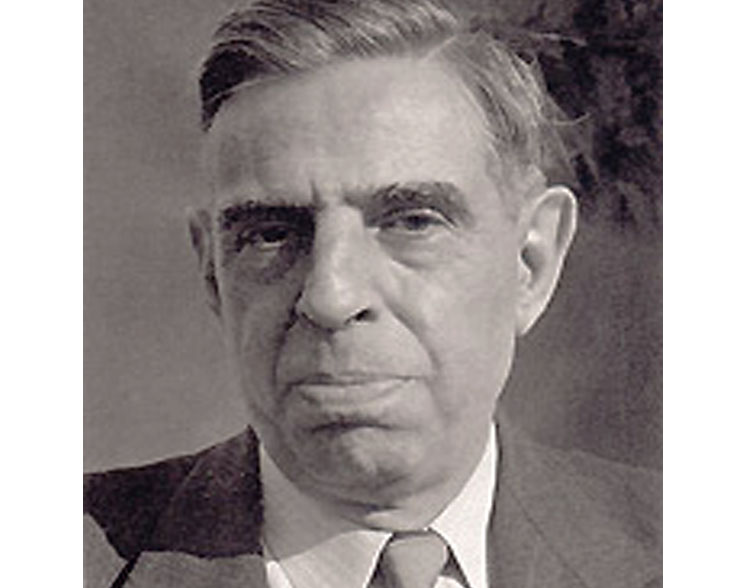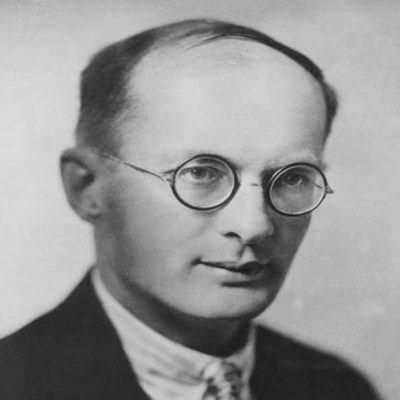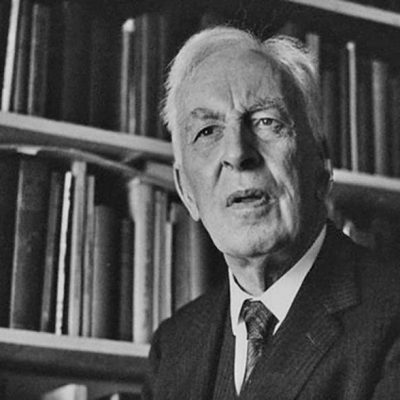 Portraits of World Citizens.
Portraits of World Citizens.
Giuseppe Antonio Borgese: Common Cause.
Featured Image: Giuseppe Antonio Borgese. Public Domain. By https://it.wikipedia.org/wiki/Giuseppe_Antonio_Borgese#/media/File:G._A._Borgese.jpg
“The era of humanity has not begun, but the age of nations has ended. It ended in 1914 when the world wars began. Hence, earth and sky be Commonwealth to all, that Man at last may raise must Nations fall.”
Giuseppe Antonio Borgese (1882 -1952) whose birth anniversary we note on 12 November, was an Italian-born professor of literature at the University of Chicago and a leading world citizen in the late 1940s. In 1931, Borgese was a visiting professor at the University of California when Mussolini announced that an oath of allegiance to the Italian Fascist state would be required of all Italian professors. Borgese did not go back and wrote to Mussolini:
“My dwelling place can only be where it is permitted a writer to be truly a writer.”
Borgese published “Goliath: The March of Fascism” (1937) when few in the United States were following political events in Italy. He developed further his views as the Second World War developed in “Common Cause.” (1)
In 1939 he married Elizabeth Mann, youngest daughter of the German writer Thomas Mann, who was living in exile in Princeton, New Jersey. In the mid-1970s, I knew Elizabeth Mann Borgese, who had become a specialist on law of the sea issues.

Thomas Mann, Nobel laureate in Literature 1929. By Nobel Foundation, Public domain, via Wikimedia Commons.
G.A. Borgese was a leading member of the University of Chicago-based Committee to Frame a World Constitution which wrote the “Preliminary Draft of a World Constitution” (1948) (2) As Borgese wrote:
“The popular assumption that the present movement toward world unity originates essentially in the technological revolution as applied to ‘ weapons of mass destruction ‘ is a fallacy derived from the superstition of our time, which is the adoration of the tool, the cult of the material causes. Techniques and tools are the product of spiritual evolution which in successive waves of reactions and actions they become contributing factors. They are not the first causes. It was not the Legion that made Rome, not the phalanx that built Macedonia, but conversely. For the age of nations, after a span of six centuries was as good as dead for reasons far deeper and more complex than any technological change, in 1914 – when uranium was quietly number 92 on the periodic table, and plutonium was nothing and nowhere.”
For Giuseppe Antonio Borgese, we need to change the way we think of ourselves and each other, not as members of separate nations but as citizens of one planet with justice as a core value. Justice is a timeless and universal idea whose historical appearances and demands are variously and progressively determined by the various configurations of the ages. At a time when there is injustice in many parts of the world, it is useful to recall the vital efforts of Giuseppe Antonio Borgese.
Notes.
1) G.A. Borgese. Common Cause (New York: Duell, Sloan and Pearce, 1943)
2) G.A. Borgese. The Foundations of the World Republic (Chicago: University of Chicago Press, 1953)
René Wadlow, President, Association of World Citizens.

President, Association of World Citizens (AWC).
Estudied International relations in The University of Chicago.
Estudied Special Program in European Civilization en Princeton University
Here are other publications that may be of interest to you.
Kenneth Waltz: The Passing of the Second Generation of the Realists.
The death of Professor Kenneth Waltz; on 12 May 2013 in New York City; at the age of 88; marks the start of the passing of the second generation of…
Benjamin Ferencz, Champion of World Law, Leave a Strong Heritage on Which To Build.
Featured Image: Prosecutor Benjamin Ferencz at the Einsatzgruppen Trial in Nuremberg. Ferencz was a civilian employee with the OCCWC, thus the picture showing him in civilian clothes. The Einsatzgruppen Trial (or „United…
Bronislaw Malinowski: Understanding Cultures and Cultural Change.
Featured Image: Bronislaw Malinowski (1884-1942), Professor of Anthropology. By Library of the London School of Economics and Political Science, No restrictions, via Wikimedia Commons. Bronislaw Malinowski (1884-1942) whose birth anniversary…
Arnold Toynbee: A World Citizens view of challenge and response.
Featured Image: Arnold Toynbee. By Atyyahesir, CC BY-SA 4.0 https://creativecommons.org/licenses/by-sa/4.0, via Wikimedia Commons. Arnold Toynbee (1889-1975) was a historian, a philosopher of history, and an advisor on the wider Middle…



